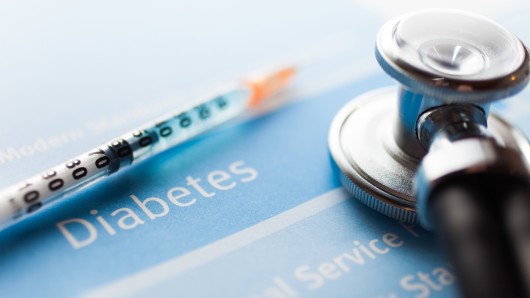Human clinical trials to begin on drug that reverses diabetes in animal models
By Darren Quick
November 6, 2014

Clinical trials are set to begin in 2015 on the potential of a common blood pressure drug for treating diabetes (Photo: Shutterstock)
A study at the University of Alabama at Birmingham (UAB) has shown that verapamil, a drug widely used to treat high blood pressure, irregular heartbeat and migraine headaches, is able to completely reverse diabetes in animal models. The UAB team will now move onto clinical trials to see if the same results are repeated in humans.
Following years of research, the UAB researchers have shown that high blood sugar causes the body to overproduce a protein called TXNIP. Too much of this protein in specialized cells in the pancreas called beta cells contributes to the progression of diabetes by leading to the death of the cells and countering the body's efforts to produce insulin.
The researchers found that verapamil can lower the levels of TXNIP in pancreatic beta cells to the point that the disease was eradicated in mouse models with established diabetes and blood sugar levels over 300 mg per deciliter. The team has also shown that verapamil reduces TXNIP levels in human islet beta cells, suggesting the same beneficial effects will carry over to humans.
"That is a proof-of-concept that, by lowering TXNIP, even in the context of the worst diabetes, we have beneficial effects," said Anath Shalev, M.D., director of UABís Comprehensive Diabetes Center. "And all of this addresses the main underlying cause of the disease ó beta cell loss. Our current approach attempts to target this loss by promoting the patientís own beta cell mass and insulin production. There is currently no treatment available that targets diabetes in this way."
To test whether the drug is effective in humans, 52 people between the ages of 19 and 45 that have received a diagnosis of type 1 diabetes within the previous three months will be enrolled in a clinical trial funded by the JDRF. The trail is set to begin in early 2015 and will see subjects receiving either verapamil or a placebo for one year while continuing their insulin pump therapy. Subjects will also receive a continuous glucose monitoring system that will allow their blood sugar to be measured for 24 hours a day, seven days a week.
"Currently, we can prescribe external insulin and other medications to lower blood sugar; but we have no way to stop the destruction of beta cells, and the disease continues to get worse," said Fernando Ovalle, M.D., the co-principal investigator of the study who helped develop and will oversee all clinical aspects of the trial. "If verapamil works in humans, it would be a truly revolutionary development in a disease affecting more people each year to the tune of billions of dollars annually."
Given its duration of only a year, Shalev says it is unlikely that subjects in the trial would see an increase in their beta cells to the point that they are producing enough insulin on their own to no longer require any insulin injections. However, she believes the drug will have an extremely important, if more subtle, effect on participants.
"We know from previous large clinical studies that even a small amount of the patientís own remaining beta cell mass has major beneficial outcomes and reduces complications," Shalev said. "Thatís probably because even a little bit of our bodyís own beta cells can respond much more adequately to very fine fluctuations in our blood sugar Ė much more than we can ever do with injections or even sophisticated insulin pumps."
The team's research and upcoming clinical trial are outlined in the video below.